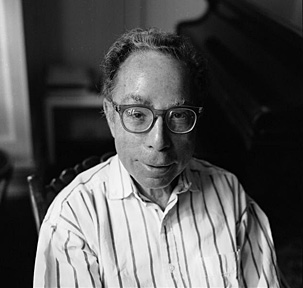Can instrumental music communicate specific information?
Of course not, we reflexively answer.
“But what if a composer finds him- or herself in a situation where direct communication becomes imperative?” asks Michael Beckerman, PhD, professor of music at New York University. “And what if instrumental music is the last resort?”
The questions are not only academic. “Such was the situation in the Terezin concentration camp,” Beckerman says, “where a group of composers tried to figure out how to sabotage Nazi propaganda portraying the camp as a ‘Paradise Ghetto’ for the Jews.”
At 6 p.m. Monday, Oct. 8, Beckerman will discuss “Terezin, Land of Invisible Texts” for the Department of English in Arts & Sciences. The talk will explore the ways composers at Terezin “forced instrumental music outside its comfort zone by invoking absent texts, and how these were used in order to make powerful statements that were at once artistic and quite practical.”

The lecture, which is free and open to the public, is held in memory of Richard Stang, PhD, professor emeritus in English, who passed away last year.
A specialist in Romantic and Victorian literature, Stang taught at WUSTL for 36 years. He was the author of The Theory of the Novel in England 1850-1870 (1959) and Discussions of George Eliot (1960) as well as co-editor of Critical Essays of Ford Madox Ford (2002).
Beckerman has written books on Antonin Dvorak, Leos Janacek and Bohuslav Martinu. His interests include the question of idyllic music, music in concentration camps, Eastern European music, music in film and opera. He is currently studying the music of Gideon Klein, a composer who wrote music in Terezin and died in the camps.
The lecture takes place in Hurst Lounge, Duncker Hall. A reception will immediately follow. For more information, call (314) 935-8389.